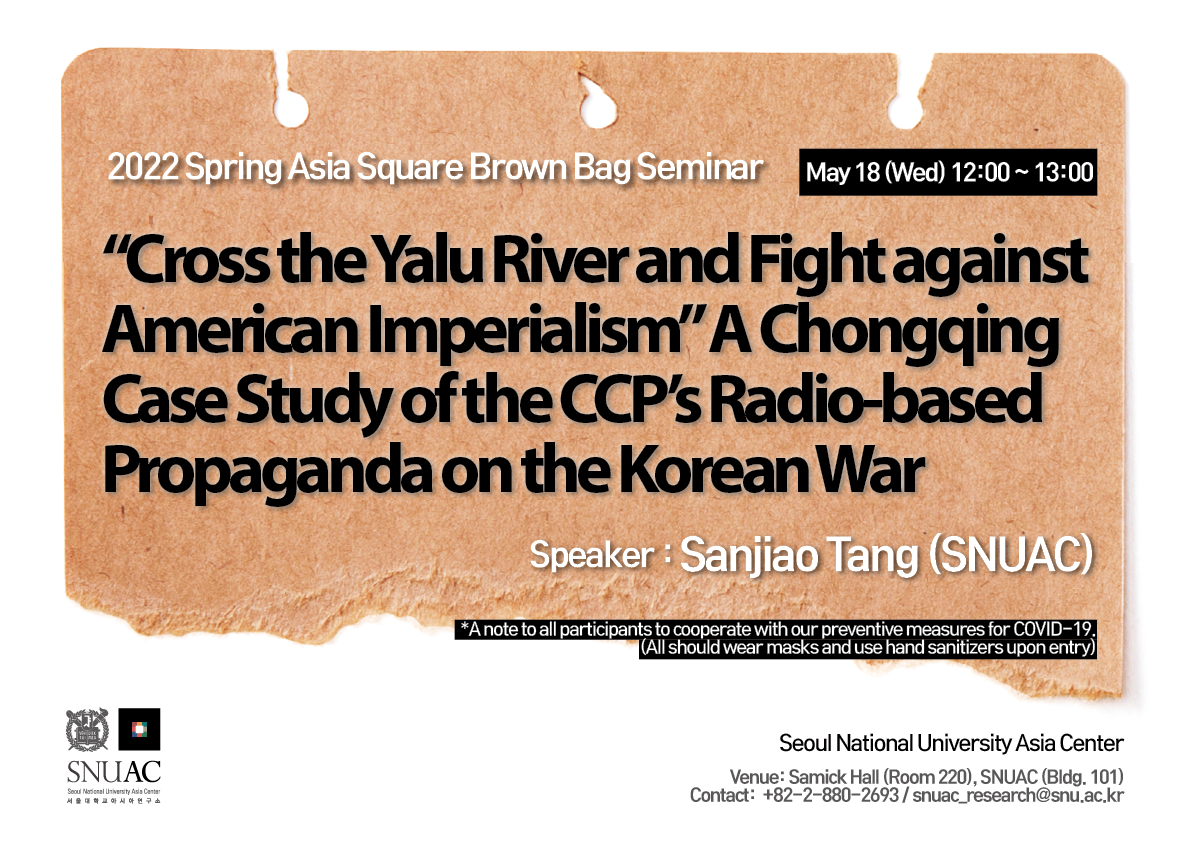“Cross the Yalu River and Fight against American Imperialism” A Chongqing Case Study of the CCP’s Radio-based Propaganda on the Korean War
- Date: May 18th, Wednesday, 2022, 12:00 – 13:00
- Location: Samick Hall (Room 220), SNUAC (Bldg. 101)
Speaker: Sanjiao Tang (SNUAC)
Propaganda, as Brady (2016) describes, “has always been an essential element of the Chinese Communist Party (CCP)’s hold on power.” Whenever it involves international tension, domestic propaganda toward Chinese people, especially those at the grassroots, becomes primarily significant for maintaining the CCP’s legitimacy. To promote nationalist activism, some tried and tested strategies remain in place for the CCP’s propaganda. Challenged by the Sino-U.S. conflict from 2018, the CCP is sparing no effort to propagandize whatever happened to Chinese people. Many of the core ways now in use surprisingly echo the CCP’s propaganda on its participation in the Korean War over 70 years ago. One of the few differences is the technical platforms on which the propaganda is based. In the 1950s, radio broadcasting notably expanded its coverage and influences. Nowadays, it is making full use of the Internet and Social Networking Sites. Yet, behind this difference, what keeps the same is the CCP’s keenness to maximize its propaganda effect by using the most advanced media technology at the time. In this sense, for better understanding the rebirth of nationalist activism in today’s China, it is indispensable to comprehend the CCP’s strategies for nationalist propaganda. A review of how it reached the goal 70 years ago will help the comprehension.
Based on large amounts of primary sources and old publications collected from China, most of which have never been accessed or researched before, through a case study of a radio station running in Chongqing (1950—1954), my presentation will expose the CCP’s radio-based propaganda on the role it played in the Korean War. As the Temporary Capital of China during World War Two, Chongqing hosted lots of aid groups from the U.S. and the 대한민국임시정부, just a few years before the outbreak of the Korean War. Undoubtedly, it was not easy to convince Chongqing residents, many of whom had personal impressions of Americans or Koreans, of the necessity to involve the international tension and warfare on the Korean Peninsula.

